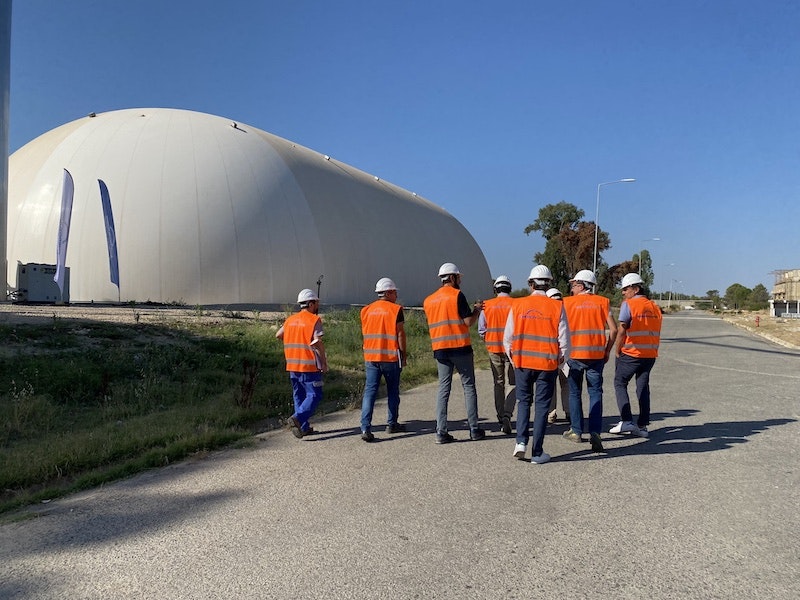Reaching net zero may require spending more than $100trn-150trn ($3trn-5trn a year for 30 years) — and green industries are buzzing with startup entrepreneurs who want to tap into the opportunity.
But for many, going from a concept plan on a whiteboard to a fully fledged, scalable and commercial-ready product won’t be easy.
“Green entrepreneurs have many of the same challenges that any entrepreneur has to start,” says Danielle Ullner, managing director and partner and global practice area lead for energy at BCG Digital Ventures, citing challenges such as building momentum, recruiting the right people, formulating the right pricing models and finding product-market fit.
And for climate deeptech startups, the added complexity of infrastructure and funding required compounds those difficulties. “Unlike an early internet startup, you and I in our basement, are not going to be able to, on our own, develop, scale and prove the next big disruptor in some of these less mature sectors like green hydrogen, direct air capture, or carbon capture and storage,” Ullner adds.
Despite these challenges, these four European startups, from SaaS to deeptech, have got to not just a pilot stage, but to a point where they’re market-ready — and are actively tapping into the green opportunity. Here are their stories so far.
Lune
In March, UK-based climate tech SaaS startup Lune brought in $4m in their seed round, led by VC Crane and angel investors including the cofounders of scooter startup Voi and neobank N26. The company’s mission is to ensure that products and services are climate positive by default.
By using software tools to embed carbon emissions measurement and carbon removal into their products in a visible way, Lune enables companies to tap into a climate conscious customer base. “Over the next decade, every company will become a climate company,” it says.
Underlying Lune’s business model is a conviction that climate matters to consumers and businesses alike — which market research suggests is increasingly true, especially when companies can price-match competitors. Therefore, Lune’s prospective clients are a self-selecting group, says cofounder Erik Stadigh.
Over the next decade, every company will become a climate company
“We rarely speak to the folks that only want the cheapest carbon offsets as we are focused on project quality above all else, which usually comes at a price,” he says. “The companies that we do talk to are the ones who are super excited about having the biggest possible impact.”
This eagerness from its client base (which includes Salesforce, GoCardless and Forto) about Lune’s mission, plus a scalable software-based product and market forces — that have simultaneously pushed down the "green premium" and boosted demand for climate-friendly products — have combined to facilitate the company’s growth and successful go-to-market strategy, Stadigh says.
Energy Dome
For Claudio Spadacini, founder and CEO of Italy-based long-duration energy storage company Energy Dome, the conviction that his climate-friendly mission will pay off has also been a key component of his startup’s success so far. “I recognised that long-duration energy storage is the missing link to allow the decarbonisation of the planet via the widespread utilisation of renewables,” he tells Sifted, adding it could be a pivotal need in the energy transition.
Filing the first patent for the CO2 battery — Energy Dome’s energy storage product is based on the use of CO2 as a working fluid — in 2019, Spadacini says he was sure his invention could provide the market with a commercially viable alternative for long-duration energy storage.

Spadacini adds that he had the additional advantage that Energy Dome wasn’t his first venture and he already had name recognition and credibility among early-stage investors. “I got a lot of attention from investors because of the potential of quickly delivering to the market a real alternative that could be immediately deployed,” he says.
I recognized that long-duration energy storage is the missing link to allow the decarbonisation of the planet via the widespread utilisation of renewables
Ullner adds that climate positive policies like the US Inflation Reduction Act will potentially open up green startups to deep funding sources. That’s especially critical for less mature technologies, according to Ullner, where policy incentives will “hopefully advance less mature technologies, whether that’s long-duration energy storage, direct air capture or green hydrogen”.
But for now, it’s still a little early to predict how much each new venture will benefit from policy interventions in the US and Europe.
Carbon Clean
For many carbon capture and storage storage startups, the infrastructure, permitting and liability issues involved make scaling a challenge. That’s why, for UK-based startup Carbon Clean, ecosystem partnerships with other firms in the industry have been part of their strategy for making their technology commercially successful.
The point-source carbon capture company received huge investments from Samsung, as well as oil and gas companies Chevron and Aramco, in their record-breaking $150m funding round this year.
There is, of course, a heated debate over relationships between carbon capture startups and fossil fuel giants: the argument against it being that it facilitates a perpetual burning of fossil fuels rather than a wholesale shift toward renewables.
But by focusing on more difficult-to-change industries like steel and cement production, Carbon Clean has seen “explosive growth” in product deployment — even as supply chain shortages have tempered their pace of expansion this year, CEO Aniruddha Sharma tells Sifted.
Aker Carbon Capture
For Ullner, all hands on deck are required to innovate climate tech, so the best strategy is to just start: “Don’t get discouraged, the world needs more climate entrepreneurs,” she says.
“You need to prove [your product is] viable before [investors] fund it. But in order to attract investment, you need to prove it's viable. So you go in this circle, but I'm saying: entrepreneurs, investors, governments do not play a game of chicken.”

That’s the strategy Norway-based carbon capture startup Aker Carbon Capture took in the 2010s when they started testing their technology, a post-combustion capture technology that can be applied on emissions from various sources — from gas, coal, cement, refineries and waste-to-energy through to hydrogen and other process industries.
“At that point in time, the world wasn’t ready,” says chief commercial officer Jon Knudsen. But their early entry into the space meant that when the market came back around to carbon capture in 2019, the startup was ready for scaling.
Stay the course we need you now more than ever
By then, they didn’t just have credibility in the industry from their well known investor base, but they were also directly contributing to innovation in market development, such as with their ‘carbon capture made easy’ product that they launched last year.
“We needed to be front runners in packaging this technology,” says Knudsen.
“Being a first mover can bring tremendous benefits for market leaders, you see that with batteries in markets like Japan which were first movers,” adds Ullner. “And even though there might be first mover disadvantages like higher capital costs, who cares? That's why we're entrepreneurs, and that's why we're passionate about this.”
And as much as it’s easy to get distracted by geopolitical volatility and macroeconomic issues, Ullner still has the same message for green entrepreneurs: “Stay the course we need you now more than ever.”
BCG Green Ventures, part of BCG Digital Ventures, is spearheading BCG’s mission to accelerate climate action through corporate innovation.




